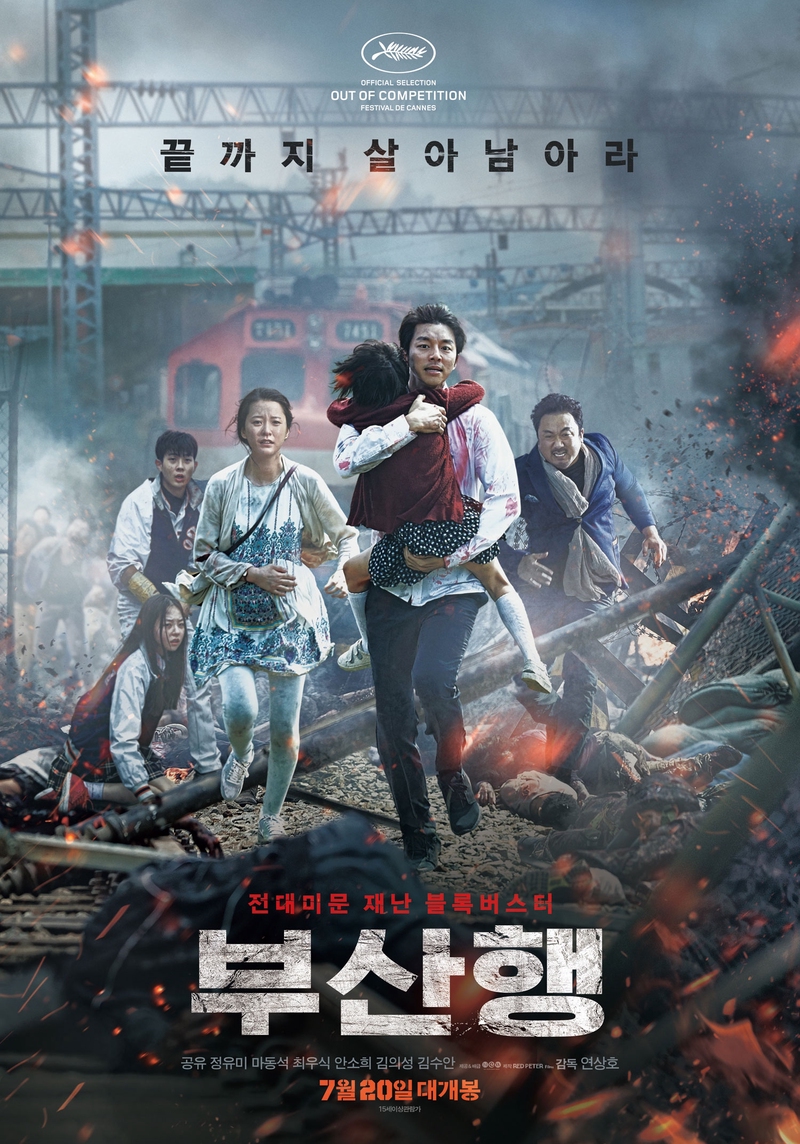
Actors like Gong Yoo (Coffe Prince (2007)), Ma Dong Seok (38 Task Force (2016)), Choi Woo Shik (Ho Goo's Love (2015)) and Jung Yu Mi (Reply 1994 (2013)), are some of the cast that participate in this genius movie production. This is an 1 hr. and 58 min movie packed with tons of excitement.
Seok Woo promises his daughter to take her from Seoul to Busan with the KTX train (high-speed train) so she can meet her mother again. When a zombie-virus outbreak spreads through South Korea, the passengers on the train gets trapped and desperately tries to survive this horrendous apocalypse.
¨Train to Busan" is one of the most epic productions I have ever seen. This movie is packed with badass acting, and amazing special effects that leaves you speechless.
Zombies are one of the things I hate the most, just the thought of zombies freak me out, even though I know they are not real. However, ¨Train to Busan¨ is not your typical zombie movie. This movie is a mixture between comedy, tragedy, horror and well yeah -zombies. But fear not my friend, ¨Train to Busan¨ is not one of those movies that scare the shit outta you. ¨Train to Busan¨ is one of those movies that makes you bawl your eyes out. Be prepared for a lot of crying, and make sure to bring lots of tissues, trust me you will need them. If I managed to get through this movie without skipping a single scene, I am usually pretty weak when it comes to scary things, I can guarantee you that you will get through this just fine.
I rate this movie 10/10, and believe me it is defiantly worth the watch. If you like horror themed movies that makes you sob uncontrollably, this is defiantly the movie for you my friend.
mydramalist.com - Read movie description here
kissasian.com - Watch movie here
Comments
Post a Comment